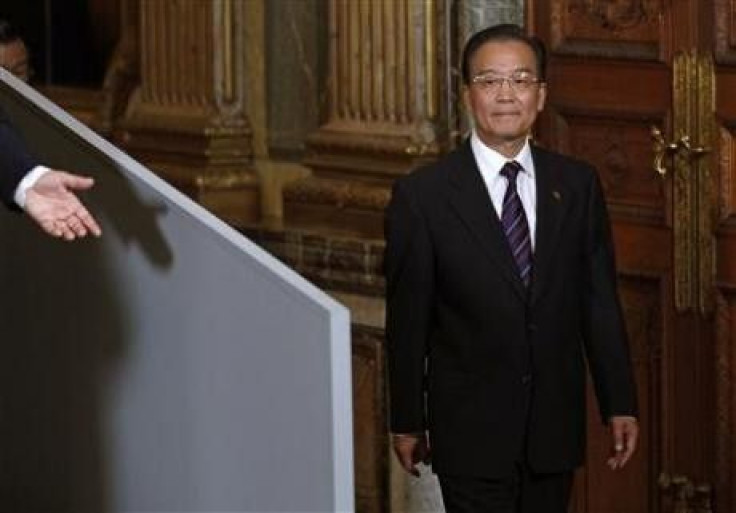Japan wary of rise in China's maritime activities

China's naval forces are likely to step up their activities in waters around Japan, Tokyo's annual defence report said on Tuesday, the latest expression of regional security concerns about China's military buildup.
A week after Beijing said it was refitting an old Soviet aircraft carrier and sources told Reuters that it was building two of its own carriers, the report said China has responded in a coercive manner to deal with regional conflicts.
Japan's defence white paper also urged caution against cyber attacks and said North Korea's nuclear and missile projects posed serious threats to national security.
"Given the modernisation of China's naval and air forces in recent years, its sphere of influence is likely to grow beyond its neighbouring waters," the report said.
"It is expected that China will try to keep expanding the area of activities, and to make its naval activities a routine practice in waters surrounding Japan including the East China Sea and the Pacific Ocean, as well as in the South China Sea."
China has been flexing its muscles in the South China Sea, where a territorial dispute with Taiwan and several Southeast Asian nations has festered for years.
Japan, which has its own territorial rows with China over East China Sea isles, is planning to boost the number of submarines to 22 from 16, in what specialists say is a response mainly to China's aircraft carrier ambitions.
Although it is equipped with advanced combat aircraft such as Boeing Co's F-15 Eagle fighter jets and naval vessels that include destroyers fitted with Lockheed Martin's Aegis ballistic missile defence system, Japan's military, known as the Self-Defence Forces (SDF), is untested in battle.
Japan has a standing military of about 230,000 personnel, one-tenth of China's.
While China's defence budget has shot up nearly 70 percent over the past five years, that of Japan -- constrained by a public debt twice the size of its $5 trillion economy -- fell 3 percent over the same period, the report said.
The white paper also expressed concerns over China's rapid military buildup, the lack of transparency of its defence equipment and defence expenditures, and its assertiveness in dealing with international conflicts.
"When handling problems that involve a conflict of interest with neighbouring countries including Japan, China has responded in a way seen as coercive, stirring up worries about its future direction," it said.
China has repeatedly said its military modernisation is purely for defensive purposes, pointing out it that it spends far less than the United States on its military.
Like its earlier editions in recent years, Japan's latest annual report asserted Tokyo's claim to a group of islets over which Seoul also says it has sovereignty.
The release of the white paper comes a day after South Korea slapped an entry ban on the three Japanese opposition lawmakers who planned to visit a South Korean island near the disputed islets, called Dokdo in Korean and Takeshima in Japanese.
DESTABILISING FACTORS
The report called for vigilance against cyber attacks after recent high-profile online assaults targeted the International Monetary Fund, the U.S. Central Intelligence Agency and defence contractors, including Lockheed Martin.
"Cyber attacks on the information networks of governments and armed forces as well as on other vital infrastructure can have a grave effect on national security. Threats in the cyber space need to be closely watched," the white paper said.
It also blamed North Korea's nuclear and ballistic missile development programmes, as well as its provocations on the Korean peninsula, for destabilising security in North Asia.
"In particular, North Korea's nuclear tests ... are a serious threat to the safety of our country, and markedly harm the peace and stability of Northeast Asia and the international community. They can never be tolerated."
In contrast, the report praised Japan's half-a-century-old security alliance with the United States as an "indispensable cornerstone for peace and stability of the Asia Pacific region."
Tokyo's ties with Washington frayed after the Democratic Party took office in 2009 and then-Prime Minister Yukio Hatoyama sought to keep a campaign pledge to move the U.S. Marines' Futenma air base off its southern island of Okinawa.
Japan last year agreed with the United States to stick to a 2006 deal to move the base to a less populous area on the island, but the Japanese government has yet to win support for that plan from local residents.
© Copyright Thomson Reuters 2024. All rights reserved.











